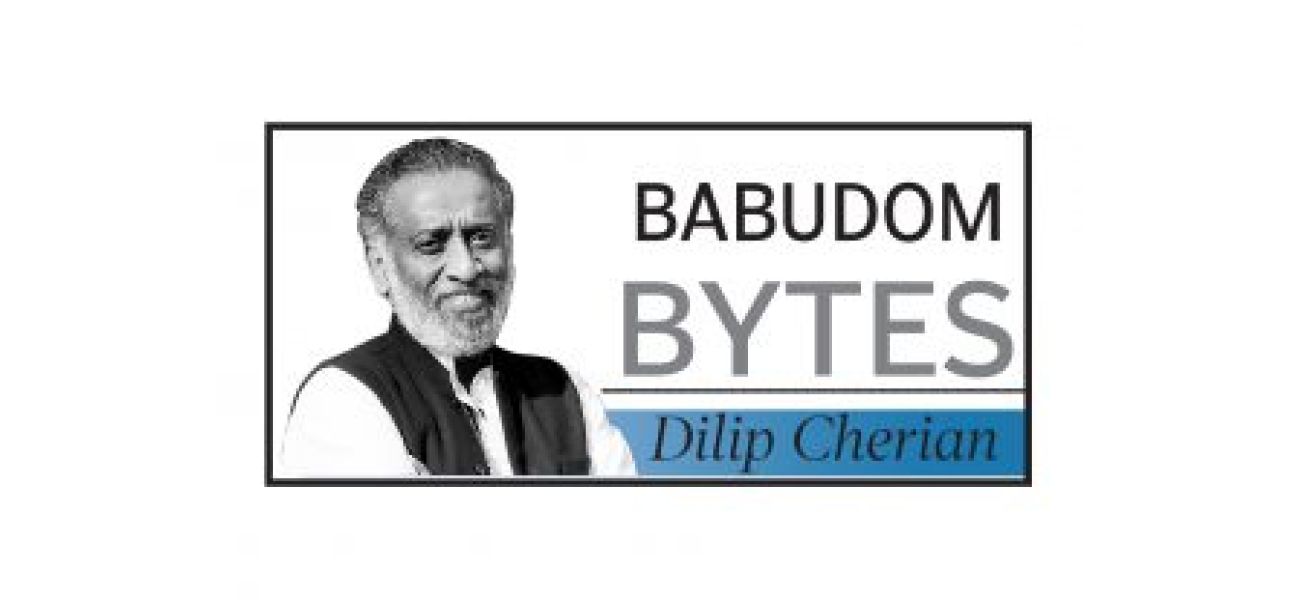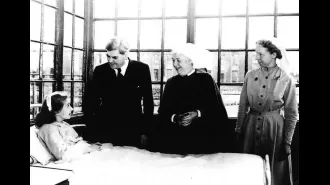Unlimited job security.
Superannuation used to hold significance, but now it's just a placeholder until the next extension. Govind Mohan is the newest member of the Great Indian Extension Club, delaying his retirement until August 2026 or later.
July 19th 2025.

There was a time when the word "superannuation" held significant meaning. It marked the date that one would retire from their esteemed position, until the next extension would arrive. However, it seems that this is no longer the case. The recent addition of Union Home Secretary Govind Mohan to the Great Indian Extension Club is proof of this. Originally scheduled to retire in September 2025, Mohan will now be staying on until August 2026 or possibly even later.
The process of extensions has become a routine occurrence, with top officers continuously avoiding the traditional retirement ritual. The Cabinet Secretary, for example, lives on an annual renewal plan. Unfortunately, for those like Ravi Sinha of RAW, luck was not on their side and they were not granted an extension. On the other hand, Parag Jain of RAW was fortunate enough to receive an extension in time.
This trend extends to various states as well, becoming a proud tradition. In West Bengal, Chief Secretaries rarely retire, instead acquiring more titles. However, this is not the case for others who are not as fortunate.
This raises an uncomfortable question - what about the highly capable officers who are waiting for their turn? It is difficult not to feel for them, as they have followed all the rules and regulations and yet are still not granted an extension. Perhaps they were a month too junior or too far from Delhi, or maybe they were simply unlucky.
Meanwhile, the extended family of babus (bureaucrats) continues to march on, leaving retirement for the lesser mortals.
In recent news, the world of IAS (Indian Administrative Service) coaching centers has collided with the judicial process. Dr. Vikas Divyakirti, the founder of Drishti IAS, has trained thousands to pass the highly competitive civil services exam. However, he now finds himself learning the hard way about due process, as an Ajmer court has taken cognizance of a defamation complaint against him for remarks he made in a video that allegedly disparaged the judiciary. In the video, he delivers a classroom-style monologue comparing judges and babus, which may have been taken flippantly, but it led to legal action.
Many know Drishti as a factory that produces civil servants. Its founder is not only a teacher but also a philosopher-king for lakhs of hopefuls. These coaching gurus are unofficial institution-builders, shaping attitudes and internalizing hierarchies. However, as this case has shown, they may sometimes overstep.
Although Divyakirti does not hold an official post, his cultural capital runs deep. His words hold more weight than some government circulars. When indirectly influencing the next generation of district collectors, it is important to measure one's metaphors carefully.
While the court decides on the legal merits of this case, the bigger lesson to take away is that even those who feed into the bureaucratic system must be mindful of their actions. What may be said in jest in a classroom can have dangerous repercussions in a courtroom. In a system where perception is policy, this is a valuable lesson to remember.
In another recent development, the Department of Personnel & Training has updated its Leave Travel Concession guidelines, attempting to keep up with the complex nature of Indian family trees. A circular released on July 4th clarifies who counts as "family" for LTC purposes, and hidden in the bureaucratic language is a noteworthy statement - "not more than one wife."
Yes, you read that correctly. Along with listing those who are excluded from LTC benefits, such as parents-in-law, grandchildren from estranged daughters, and grandparents, the circular also mentions a limit on the number of wives allowed. However, this is not a new policy, but rather a clarification in response to RTIs (Right to Information) and complaints about who is eligible to accompany government officials on sponsored vacations. The phrasing of this rule is a classic blend of bureaucracy and blunt truth.
This also unintentionally sheds light on the complex web of personal laws, family arrangements, and the government's cautious approach towards them. While plural marriage is allowed under certain religious laws in India, the state prefers a nuclear family for travel purposes. Jokes aside, this highlights a larger issue - our rules often fail to keep up with the evolving nature of modern relationships. Live-in partners, single parents, and blended families do not fit neatly into the CCS (Central Civil Services) Rules of 1988.
In conclusion, it is clear that the concept of "retirement" has evolved in today's society. Extensions have become more common than retirements, and those in positions of power often receive preferential treatment. However, this raises concerns for the capable officers who are waiting for their turn and the need for our rules to catch up with the changing dynamics of relationships in our society.
The process of extensions has become a routine occurrence, with top officers continuously avoiding the traditional retirement ritual. The Cabinet Secretary, for example, lives on an annual renewal plan. Unfortunately, for those like Ravi Sinha of RAW, luck was not on their side and they were not granted an extension. On the other hand, Parag Jain of RAW was fortunate enough to receive an extension in time.
This trend extends to various states as well, becoming a proud tradition. In West Bengal, Chief Secretaries rarely retire, instead acquiring more titles. However, this is not the case for others who are not as fortunate.
This raises an uncomfortable question - what about the highly capable officers who are waiting for their turn? It is difficult not to feel for them, as they have followed all the rules and regulations and yet are still not granted an extension. Perhaps they were a month too junior or too far from Delhi, or maybe they were simply unlucky.
Meanwhile, the extended family of babus (bureaucrats) continues to march on, leaving retirement for the lesser mortals.
In recent news, the world of IAS (Indian Administrative Service) coaching centers has collided with the judicial process. Dr. Vikas Divyakirti, the founder of Drishti IAS, has trained thousands to pass the highly competitive civil services exam. However, he now finds himself learning the hard way about due process, as an Ajmer court has taken cognizance of a defamation complaint against him for remarks he made in a video that allegedly disparaged the judiciary. In the video, he delivers a classroom-style monologue comparing judges and babus, which may have been taken flippantly, but it led to legal action.
Many know Drishti as a factory that produces civil servants. Its founder is not only a teacher but also a philosopher-king for lakhs of hopefuls. These coaching gurus are unofficial institution-builders, shaping attitudes and internalizing hierarchies. However, as this case has shown, they may sometimes overstep.
Although Divyakirti does not hold an official post, his cultural capital runs deep. His words hold more weight than some government circulars. When indirectly influencing the next generation of district collectors, it is important to measure one's metaphors carefully.
While the court decides on the legal merits of this case, the bigger lesson to take away is that even those who feed into the bureaucratic system must be mindful of their actions. What may be said in jest in a classroom can have dangerous repercussions in a courtroom. In a system where perception is policy, this is a valuable lesson to remember.
In another recent development, the Department of Personnel & Training has updated its Leave Travel Concession guidelines, attempting to keep up with the complex nature of Indian family trees. A circular released on July 4th clarifies who counts as "family" for LTC purposes, and hidden in the bureaucratic language is a noteworthy statement - "not more than one wife."
Yes, you read that correctly. Along with listing those who are excluded from LTC benefits, such as parents-in-law, grandchildren from estranged daughters, and grandparents, the circular also mentions a limit on the number of wives allowed. However, this is not a new policy, but rather a clarification in response to RTIs (Right to Information) and complaints about who is eligible to accompany government officials on sponsored vacations. The phrasing of this rule is a classic blend of bureaucracy and blunt truth.
This also unintentionally sheds light on the complex web of personal laws, family arrangements, and the government's cautious approach towards them. While plural marriage is allowed under certain religious laws in India, the state prefers a nuclear family for travel purposes. Jokes aside, this highlights a larger issue - our rules often fail to keep up with the evolving nature of modern relationships. Live-in partners, single parents, and blended families do not fit neatly into the CCS (Central Civil Services) Rules of 1988.
In conclusion, it is clear that the concept of "retirement" has evolved in today's society. Extensions have become more common than retirements, and those in positions of power often receive preferential treatment. However, this raises concerns for the capable officers who are waiting for their turn and the need for our rules to catch up with the changing dynamics of relationships in our society.
[This article has been trending online recently and has been generated with AI. Your feed is customized.]
[Generative AI is experimental.]
0
0
Submit Comment





